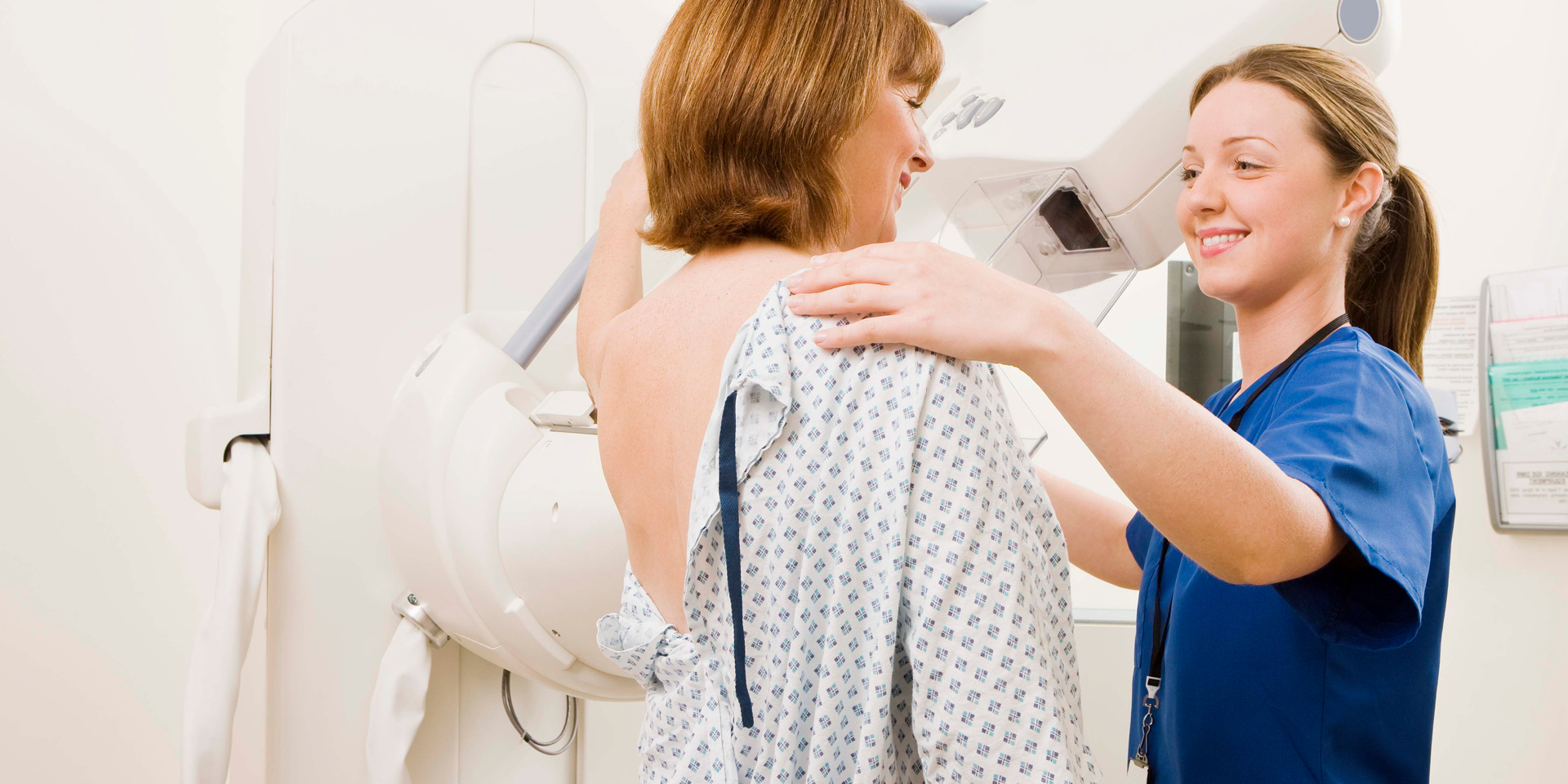Breast cancer screening guidelines had been simple for the twenty five years prior to 2016: mammograms were recommended for every woman, every year, from age 40 until her death at any age.
This straightforward approach was turned upside-down when the U.S. Preventive Service Task Force (USPSTF) issued its final breast cancer screening recommendation.
What are the Changes?
The USPSTF suggests that women with an average risk of breast cancer start having mammograms every other year starting at age 50 and stopping at age 75. This recommendation differs from that of many national health organizations such as the American Cancer Society (ACS), the American College of Radiology (ACR), and the American Congress of Obstetricians and Gynecologists (ACOG) who generally recommend that women receive annual mammograms starting at 40-45 years.
The USPSTF also called into question the benefits of breast self-exam in detecting cancer, prompting the ACS to recommend against regular clinical breast exams or breast self-exams as part of a routine breast cancer screening schedule.
Why the Change in the Guidelines?
The USPSTF based its recommendation on a study that found that women following the standard guidelines were "over-diagnosed" and subject to "over-treatment," resulting in false-positive results and unnecessary biopsies.
These new, conflicting guidelines caught women and their doctors by surprise—and has made it confusing for women to understand recommendations for breast cancer screening.
How Should Women Respond to the Changing Guidelines?
If the changing recommendations have you puzzled, you are not alone. To clear up the confusion, we spoke to Michele Kopach, MD. She is an expert in breast cancer screening and is a passionate advocate for the empowerment of women in their healthcare choices.
Dr. Kopach emphasizes that "the goal of screening is to reduce deaths due to breast cancer by detecting cancer early when treatment is more effective and less harmful." For this reason, she prefers to follow the guidelines set forth by the American College of Radiology (ACR), which recommends that women with an average risk start getting annual mammograms at age 40.
According to Dr. Kopach, women who are at high risk for breast cancer due family history or inherited genetic mutations such as the BRCA1 and BRCA2 genes should speak to their doctor about starting screening mammograms earlier than age 40. Screening techniques, such as MRI or breast ultrasound, may be used in these cases.
Dr. Kopach believes that self-exam is a good adjunct to mammography, but is not perfect. She acknowledges that "the majority of irregularities that a woman might feel during self-exam are benign." Adding that, "by the time a woman can detect cancer through self-exam, it is often advanced."
Regular mammograms remain the gold standard for detecting breast cancer in its early stages, according to Dr. Kopach. Since people are unique individuals, the best solution to the confusion is to talk to your personal doctor who knows your history best.
Request a Mammogram Appointment
Free Breast Cancer Screening
Doylestown Health is offering free breast cancer screening on November 2nd for those who qualify. Call the Linda Creed Breast Cancer Organization at 215.564.3700 for more information.
About Doylestown Health
Doylestown Health is a comprehensive healthcare system of inpatient, outpatient, and wellness education services connected to meet the health needs of the local and regional community. The flagship of Doylestown Health is Doylestown Hospital, a not-for-profit, community teaching hospital with 245 beds and a medical staff of more than 600 providers who deliver the highest quality care in over 50 specialties. Renowned locally, regionally, and nationally, Doylestown Hospital provides superior healthcare and offers advanced surgical procedures, innovative medical treatments, and comprehensive specialty services. Serving Bucks County for over 100 years, Doylestown Hospital is proud to educate and train the next generation of physicians through its family medicine residency program. Ranked as one of the World’s Best Hospitals by Newsweek and 9th in Pennsylvania, Doylestown Hospital is distinguished in both infection prevention and patient experience. Doylestown Hospital is the only hospital in Pennsylvania to achieve 18 consecutive ‘A’ grades for patient safety from Leapfrog Hospital Safety Grade. Learn more at doylestownhealth.org.
